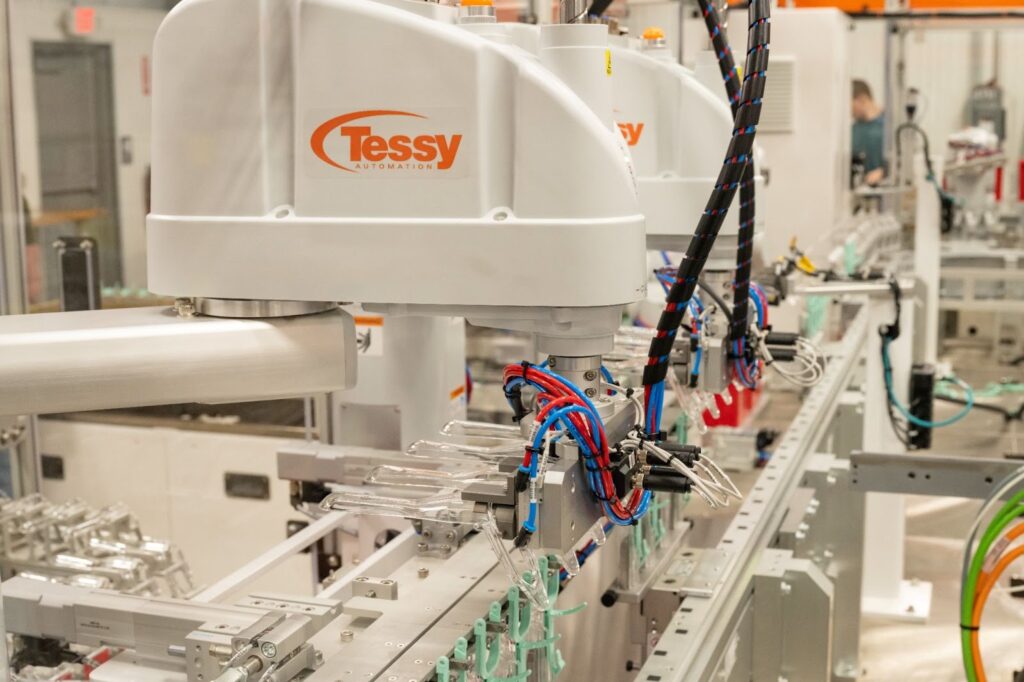Automation’s Impact on Pharmaceutical Manufacturing Companies

The Growing Demand for Automation
Across all industries, automation has emerged as one of the highest growth sectors and biggest areas of investment right up there with AI. According to electronics distributor DigiKey, the automation sector of their business has grown to account for 10% of their operations now, despite a company-wide slowdown in activity over the past year. This demand for automation is expected to continue growing, especially in the manufacturing world– and considering the advantages that automation has to offer, it’s really no surprise.
Addressing Key Manufacturing Challenges with Automation
Labor
Whichever industry you place under a magnifying glass, a phenomenon that you’re bound to discover is that skilled labor is on the decline. As many key players with a decades-long track record of excellence have begun to exit the workforce, they are taking those years of tribal knowledge out the door with them. This means that fresh faces in today’s manufacturing world have bigger shoes to fill than ever before. In many cases, this high demand leads to poor retention and more frequent turnover, further exacerbating the labor issue.
One way that pharmaceutical manufacturing companies can improve training and increase labor retention is by simplifying their processes with the use of automation. Many of today’s automation systems can perform vital yet tedious operations quicker, cheaper, and more accurately than their human counterparts. This not only reduces reliance on labor, but also empowers workers to get started faster with a less steep learning curve.
Device Complexity
Products that incorporate pharmaceuticals are designed for quick and simple dispersal. In order to achieve that, the product itself must often integrate intricate mechanisms or complex assemblies that translate into a near-foolproof user experience. With automation, these complicated devices can be easily put together in record time for higher throughput and reduced scrap rates.
Quality Control
To error is human, as the saying goes. Everybody makes a mess from time to time, but in pharmaceutical manufacturing there is no room for error. Automation is making a positive difference in the pharmaceutical sphere by making quality control processes faster, more accurate, and more hygienic than ever before possible. By automating QC and QA checks for parameters like fill level, component assembly, and label verification, pharmaceutical manufacturing companies can experience an increase in product quality and throughput simultaneously.
Profitability
In combination, all of these challenges boil down to one thing: profitability. Although automation does come with an up-front cost, it has proven time and time again to deliver an ROI often multiple times over.
For more info on how automation can help protect profitability for pharmaceutical manufacturing companies, check out our presentation, Automating in An Automated World.
How Pharmaceutical Manufacturing Companies Use Automation
The benefits of automation are plentiful, and quite promising in theory. But what does implementation actually look like for pharmaceutical manufacturing companies? These are just a few ways that manufacturers are leveraging the latest in automation, machine learning, and robotic technology to improve their operational efficiency.
Improving Production Quality of Drug Delivery Systems
Needle quality is critical to both patient comfort and effective drug delivery systems. One manufacturer realized the benefits of automation by using it to increase the quality of their needles. Before adopting their current automation process, as many as 40% of needles produced using their old methods did not meet quality standards. With almost half of all needles produced needing to be scrapped, countless hours of manpower and energy consumption were ultimately wasted, with this manufacturer eating the costs. In stark contrast, this company is now producing needles that meet or exceed their quality standards 99% of the time with a system revamped through automation, bringing their scrap rate down to just 1%.
Scaling Up Syringe Production
Another pharmaceutical manufacturer came to Tessy to help solve a scalability issue to meet syringe production demands in 2020. Traditionally, syringes have always been made of glass– a fine material for the job, but one that presents production and logistics challenges due to its delicate nature. Our engineers not only developed an automation system that could produce syringes at a rate that could handle market demands; they also created a proprietary solution to make plastic syringes with glass-like properties just for this application. Through this automation process, this manufacturer can now coat up to 38 new syringes per minute in one cell. The syringes are packaged in containers which can hold as many as 100 to 160 units, ready to be sent to their next destination.
Packaging Pharmaceuticals
Most recently, global pharmaceutical exhibition ACHEMA has reported on the significance of robotics and automation in the production of pharmaceutical packaging. According to their sources, the pharmaceutical packaging market is not just keeping pace with production; in fact, the packaging segment is outgrowing the production segment significantly. In packaging sterile materials, some pharmaceutical manufacturing companies are ready to embrace the age of automation fully without hesitation. Others are taking the transition in phases, utilizing co-bots alongside workers before fully automating their processes. Between both cases, the throughline is production flexibility: the ability to quickly and seamlessly pivot from producing one product to another with minimal changeover requirements. In embracing automation for production flexibility, pharmaceutical manufacturing companies can remain not just relevant but competitive in today’s market.
Selecting An Automation Partner
While automation holds immense promise for manufacturers the world over, selecting a partner with experience in the pharmaceutical and diagnostic industries can make all the difference. At Tessy, we focus on inclusive collaboration to understand your biggest manufacturing pain points and reach the solution that you need. Contact Tessy today to get started.
Discover 10 reasons why Tessy is a leading choice for pharmaceutical manufacturing and automation solutions.
